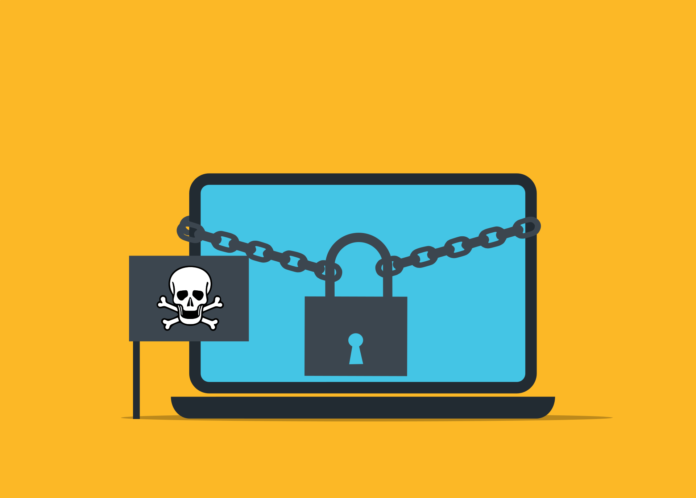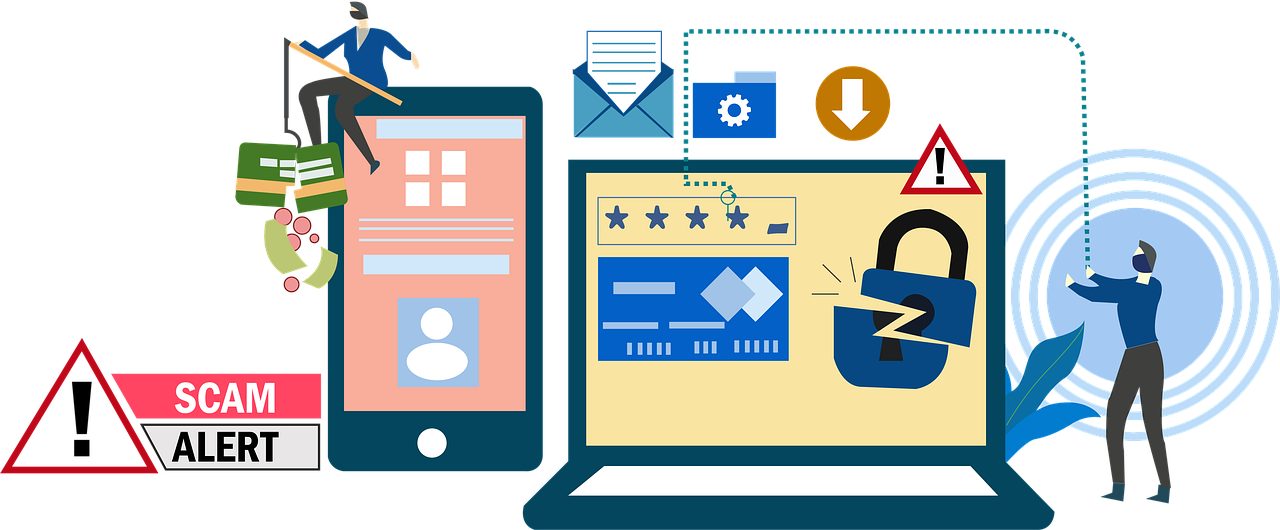Who are the most at risk of falling into phishing scams? Read on to find out…
If you’ve ever received a random letter about too-good-to-be-true investment opportunities, you have experienced phishing firsthand.
According to multiple resources, phishing has been the number one type of cybercrime in the last few years.
Targeting individuals and businesses, phishing is the most frequent online attack and the most expensive, costing individuals and businesses millions of dollars.
The consequences for businesses are dire – operational halts, financial losses, lost customers, damaged reputation, stolen data, and legal fees. For individuals, falling victim to a phishing scam means losing their money, confidential data, and trust in online safety.
But are all of us at risk of falling into phishing scams? Let’s break it down.
Table of Contents
What Is A Phishing Scam and How Does It Work?
For those who do not know, a phishing scam is a type of cybercrime and a social engineering attack where fraudsters attempt to steal your money or private information by pretending they are someone they are not – your bank, government, NHS, or distant cousin, for instance.
Phishing scams are traditionally conducted via email, but new forms emerge yearly. Lately, phishing scammers have been targeting more and more of their victims via SMS and instant messaging apps such as WhatsApp.
So, Who Are The Most At Risk Of Falling Into Phishing Scams?
Regarding cybercrime, ordinary people and small businesses share the same fatal flaw – they believe they are too insignificant to be targeted by malicious actors.
Year after year, statistics confirm that nobody is safe from cyber-attacks.
In a recent study by the Office for National Statistics, half of the surveyed adults reported receiving a phishing message in the month before being asked.
It can be cheaper and more effective for cyber criminals to target hundreds of unsuspecting email users than attack a single organization with high-end IT protection.
Who are the most at risk of being targeted by phishing scammers?
According to the report, the most vulnerable individuals are Millennials and Gen-Z internet users – people between 18 and 45 who spend much time unprotected online.
Phishing scams often use big contemporary events as bait. During COVID, many individuals fell victim to phishing scammers posing as NHS. Another hot trend is aimed at online shoppers – “advance fee fraud” and “consumer and retail fraud” have increased by 9% and 57%, respectively.
Many phishing scams target financially unstable individuals and families. In the UK, phishing attackers pretend to be emailing on behalf of government agencies. They promise financial support and tax rebates in exchange for personal information, usually including credit card info.
The most likely sectors to be targeted in the business world are Professional Services, Finance, Mining and Utilities, Manufacturing, and Public Administration. Nobody seems safe regarding organizational size, as scammers attack small, mid-sized, and high-profile businesses.
In 2022, 6 out of 10 UK mid-sized businesses were hit by fraud.
As another consequence of COVID, one of the weakest entry points for phishing scammers and other cybercriminals are employees working from home. Most don’t use encryption to access company archives, thus making their employers an easy target.
READ ALSO: Popular Types Of Cybercrimes
How To Protect Yourself/Your Business From Phishing?
When facing a tricky enemy such as a phishing scam, the first line of defense is to stay vigilant. In other words, you should learn how to recognize a phishing scam.
If you receive a message containing one of these elements, chances are that you have a phishing email in your inbox:
- A sender is an unknown person, organization, or brand.*
- There’s a suspicious-looking email address, link, or attachment.
- It includes a request for personal info or another unusual request.
- It creates a sense of urgency by setting a deadline.
- The message informs you that you’ve won something valuable.
*The sender can also be a reputable brand or organization, even a government body. In this case, you’ll be able to recognize a phishing scam if you notice something else that is suspicious, such as a spoofed email address or link. But unusual requests are the number one telltale sign.
The best cure against phishing is information. Learn about the red flags of phishing and the quick steps to perform if you click on a fake link.
Furthermore, blocking robotexts and spam messages is helpful to limit the number of phony SMS reaching you.
In addition, cyber safety experts call on individuals and businesses to practice digital security and use precautions. It includes strong passwords, two-factor authentication, regular updates, a firewall, and antivirus.
You should also use a VPN to stay invisible online and minimize risk. A Virtual Private Network encrypts internet traffic, making online activities more private. Furthermore, download VPN apps with additional perks like blocking malicious websites.
Thus, known phishing sites will get automatically blocked. It is also essential for anyone working from home who wishes to protect their activities further.
Who Are The Most At Risk Of Falling To Phishing Scams? FAQs
Phishing scams can be tricky, and anyone can fall victim. However, some groups are more targeted than others. Here's a breakdown:
Who Gets Phished the Most?
It's a mixed bag! Studies show higher phishing rates among:
- Young Adults (25-44): This age group receives a lot of emails and maybe busier, making them more susceptible to clicking without double-checking.
- People with Disposable Income: Scammers often target those with more to lose financially.
Does Age Make You Immune?
Not necessarily. While some research suggests older adults receive fewer phishing attempts, they can still be vulnerable. Seniors may be less familiar with the latest online threats.
Are There Personality Traits That Put You at Risk?
Maybe. Phishing scams often rely on social engineering, preying on urgency, fear, or trust. People who are more trusting or easily stressed might be slightly more susceptible.
READ ALSO: How To Identify And Avoid Online Gaming Scams
So, How Can Anyone Stay Safe?
The good news is everyone can learn to spot phishing attempts! Here are some key things to remember:
- Be Wary of Urgent Emails: Phishing emails often create a sense of urgency to pressure you to act fast. Slow down and double-check before clicking anything.
- Check Sender Addresses: Does the email address look legitimate? Typos or strange domains are red flags.
- Don't Click on Suspicious Links: Hover over a link to see the real destination URL before clicking.
- Be Skeptical of Free Offers or Unusual Requests: If something seems too good to be true, it probably is.
- If Unsure, Don't Be Afraid to Verify: If you're unsure about an email, contact the sender directly through a trusted channel (like a phone number you know is correct).
Is There Software That Helps?
While security software can help block phishing attempts, staying vigilant is key. Always be cautious about the information you share online.
Conclusion
Phishing scams are everywhere, so it's easier to assume that every email you receive from an unknown sender and address is a potential fraud.
And if you're 100% certain you're dealing with a phishing email, report it and erase it. Never respond to a phishing email.
INTERESTING POSTS
- 8 Popular Types Of Cybercrimes In The 21st Century
- Android SLocker Capitalizes on Coronavirus Pandemic to Hijack Android
- What Are Phishing Scams And How You Can Avoid Them?
- How to Protect Yourself from Online Fraud [6 Surefire Internet Safety Tips]
- How To Secure Devices Against Phishing Emails
- 7 Indications That Your Computer Is Malware-Infected
About the Author:
Daniel Segun is the Founder and CEO of SecureBlitz Cybersecurity Media, with a background in Computer Science and Digital Marketing. When not writing, he's probably busy designing graphics or developing websites.









